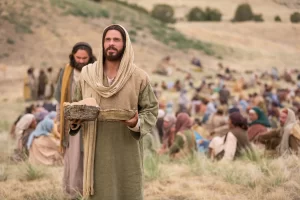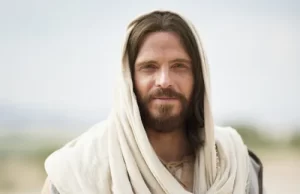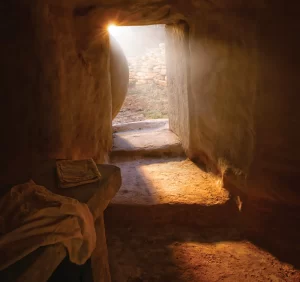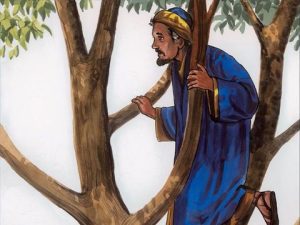


We have four different versions of the gospel.
Matthew and Mark, Luke and John, have each written an account of Jesus’ life.
They have recorded for us the words and actions of Jesus.
We can read about his preaching, his travelling through Palestine, his healing people.
The evangelists have not written in the form of what we call nowadays ‘a biography’.
Their purpose was not to relate all the details of Jesus’ life.
Coming close to the end of his text, John reveals to us his aim in writing:
“Jesus performed many other signs in the presence of his disciples,
which are not recorded in this book.
But these are written that you may believe that Jesus is the Messiah, the Son of God,
and that by believing you may have life in his name” (John 20:30-31).
Believing, not in a set of propositions – even if they are true.
Believing, not in a series of facts – even if they can be proved.
Believing, not in a list of events – even if they have really happened.

But believing ins SOMEONE – “Jesus as the Son of God”.
Believing in him… Trusting him… Relying on him…
John assures us that believing in this Man-God, Jesus, we will have life.
This is the very reason why Jesus came to live among us – he said it openly:
“I have come so that they (the people – all of us) may have life and have it to the full” (John 10:10).
Life now… Life later… Life for ever…
A life that exceeds all we could dream of, or hope for…
“God whose power works in us, can do infinitely more than we can ask or imagine…” (Ephesians 3:20).
Note: Another text is available on a different theme, in French, at: https://image-i-nations.com/2e-dimanche-de-paques-annee-b-2024/

 John and Peter are at the tomb where Jesus has been laid.
John and Peter are at the tomb where Jesus has been laid. Jesus-God abandoned by his closest followers and friends…
Jesus-God abandoned by his closest followers and friends… It starts silently as Jesus comes near to Peter and kneels to wash his feet.
It starts silently as Jesus comes near to Peter and kneels to wash his feet.
 The date was chosen because on 24 March 1980, Archbishop Oscar Arnulfo Romero of El Salvador was assassinated, after denouncing violations of human rights.
The date was chosen because on 24 March 1980, Archbishop Oscar Arnulfo Romero of El Salvador was assassinated, after denouncing violations of human rights. “Go to the village ahead of you, and just as you enter it,
“Go to the village ahead of you, and just as you enter it, reported also by the evangelist Luke (Luke 19:39-40).
reported also by the evangelist Luke (Luke 19:39-40). This year’s World Water Day, on 22 March 2024, will take place under the theme ‘Leveraging Water for Peace’.
This year’s World Water Day, on 22 March 2024, will take place under the theme ‘Leveraging Water for Peace’.
 Many of you reading these lines recall the name of this original fellow.
Many of you reading these lines recall the name of this original fellow. Y for Yeast
Y for Yeast « Jean, l’un des Douze, dit à Jésus:
« Jean, l’un des Douze, dit à Jésus: